Published Research
Access the complete library of peer reviewed scientific publications for
LASSI™ and FUNSAT™
Select a Product
FUNSAT™ Publications
 Read Article
Read ArticleFUNCTIONAL SKILLS TRAINING
Maintenance of Technology-Based Functional Skills Training Gains in Older Participants with and without Mild Cognitive Impairment: The Role of Booster Training
Lin et al., The American Journal of Geriatric Psychiatry (2025)
The American Journal of Geriatric Psychiatry
Maintenance of Technology-Based Functional Skills Training Gains in Older Participants with and without Mild Cognitive Impairment: The Role of Booster Training

SUMMARY
The current study examined training gains maintenance over time and the role of booster sessions on sustaining training gains for the technology-based Functional Skills Assessment and Training program (FUNSAT™) in older adults with and without Mild Cognitive Impairment (MCI).
The findings support the efficacy of the FUNSAT™ training program as most participants maintained or increased their training gains over time, and that the booster training was beneficial in terms of sustaining gains, indicating that booster sessions play a critical role in skills training.
 Read Article
Read ArticleFUNCTIONAL SKILLS TRAINING
Interpreting self-report measures about cognition: What matters and what to do with the data: A commentary on “Awareness of baseline functioning and sensitivity to improvement in older people with and without mild cognitive impairment receiving a computerized functional skills training program
Mahncke, International Psychogeriatrics (2025)
International Psychogeriatrics
Interpreting self-report measures about cognition: What matters and what to do with the data: A commentary on “Awareness of baseline functioning and sensitivity to improvement in older people with and without mild cognitive impairment receiving a computerized functional skills training program

SUMMARY
Biomarker tests of brain health may be positive, neuropsychological and functional measures of cognition may be positive – but will the patient’s personal experience with their cognitive performance be in alignment with these measures? Harvey and collaborators dig into this issue, with a careful analysis of the correlations between neuropsychological, functional, and self-report measures of cognitive function at baseline and the relationship between change scores on these measures after a cognitive training intervention.
Harvey and colleagues suggest a different approach – that cognitive training programs (and presumably any behavioral intervention targeting cognition, e.g., exercise, nutrition, mindfulness) should include components designed to improve the accuracy of participants’ awareness of their cognitive abilities.
 Read Article
Read ArticleFUNCTIONAL SKILLS TRAINING
Awareness of baseline functioning and sensitivity to improvement in older people with and without mild cognitive impairment receiving a computerized functional skills training program
Harvey et al., International Psychogeriatrics (2024)
International Psychogeriatrics
Awareness of baseline functioning and sensitivity to improvement in older people with and without mild cognitive impairment receiving a computerized functional skills training program

SUMMARY
The objective of the study was to examine the relative ability of participants with Mild Cognitive Impairment (MCI) to self-assess their cognitive performance and training gains.
Participants with MCI underestimated their performance deficits at baseline. Self-reports of changes in everyday functioning do not track the substantial objective changes. Previous studies have reported a lack of sensitivity to training gains in several different conditions. Strategies to increase awareness of training gains may be required to sustain treatment benefits.
 Read Article
Read ArticleFUNCTIONAL SKILLS ASSESSMENT
Migration of digital functional capacity assessments from device resident to cloud-based delivery: Development and convergent validity
Harvey et al., Schizophrenia Research: Cognition (2024)
Schizophrenia Research: Cognition
Migration of digital functional capacity assessments from device resident to cloud-based delivery: Development and convergent validity

SUMMARY
Decentralized clinical trials are leading to rapid changes in assessment technology, including an expansion of interest in remote delivery. As technology changes, some of the updates include migration to fully cloud-based software and data management, with attendant differences in hardware, response modalities, and modifications in the level of tester engagement. We present comparative data on successive generations of two widely used functional capacity measures, the Virtual Reality Functional Capacity Assessment Tool (VRFCAT) and the Functional Capacity Assessment and Training System (FUNSAT).
Four samples of healthy older individuals completed either the original device-resident, computer-administered versions, or cloud-based, tablet delivered versions of these tasks. For the FUNSAT, performance and correlations with age and cognitive task scores were generally similar across versions for English Speakers, though there were some differences related to the testing language for the cloud-based version. These results support the feasibility of migrating digital assessments to cloud-based delivery and substantiate fundamental similarity across delivery strategies.
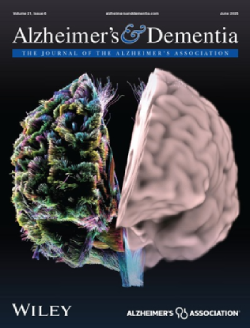 Read Article
Read ArticleFUNCTIONAL SKILLS ASSESSMENT
Novel measures of cognition and function for the AD spectrum in the Novel Measures for Alzheimer’s Disease Prevention Trials (NoMAD) project: Psychometric properties, convergent validation, and contrasts with established measures
Hyun Kim et al., Alzheimer’s and Dementia (2024)
Alzheimer’s and Dementia
Novel measures of cognition and function for the AD spectrum in the Novel Measures for Alzheimer’s Disease Prevention Trials (NoMAD) project: Psychometric properties, convergent validation, and contrasts with established measures

SUMMARY
This study derived composite scores for two novel cognitive measures, the No Practice Effect (NPE) battery and the Miami Computerized Functional Skills Assessment and Training system for use in early-stage Alzheimer’s disease (AD) clinical trials. Their psychometric properties and associations with AD risk markers were compared to those of well-established measures.
Highlight were that well-established cognitive tests may not accurately detect subtle cognitive changes. No Practice Effect (NPE) and Computerized Functional Skills Assessment and Training are novel measures designed to have improved psychometric properties. Novel measures had better psychometric properties compared to established measures. Significant associations with Alzheimer’s disease biomarkers were found with novel measures.
 Read Article
Read ArticleFUNCTIONAL SKILLS TRAINING
Association of Racial Status and Training Language with Baseline Performance and Training Gains During Computerized Training of Technology-related Everyday Functional Skills In Older Adults
Macchiarelli et al., The American Journal of Geriatric Psychiatry (2024)
The American Journal of Geriatric Psychiatry
Association of Racial Status and Training Language with Baseline Performance and Training Gains During Computerized Training of Technology-related Everyday Functional Skills In Older Adults

SUMMARY
Research consistently finds that lower baseline performance predicts greater gains with computerized training. Lower baseline performance can originate from many factors, including educational and environmental disadvantages, leading to reduced exposure to functional tasks. Across six computerized technology-related functional skills, baseline performance and training gains were compared across race and training language.
Lower baseline performance of functional skills was found to be a positive predictor of training gains and was efficiently reversed through training. Even participants who initially appeared more impaired achieved substantial gains, congruent with the results reported in psychiatric populations. Critically, low baseline competence should not be interpreted as reflecting negatively on potential training gains.
 Read Article
Read ArticleFUNCTIONAL SKILLS TRAINING
The Efficacy of a Home-Based Functional Skills Training Program for Older Adults With and Without a Cognitive Impairment
Czaja et al., Innovation in Aging (2024)
Innovation in Aging
The Efficacy of a Home-Based Functional Skills Training Program for Older Adults With and Without a Cognitive Impairment

SUMMARY
The performance of everyday technology-based tasks, such as online banking or shopping, can be challenging for older adults, especially those with a cognitive impairment. Technology-based tasks are cognitively demanding and require learning new skills. This study explored the efficacy of a technology-based functional skills assessment and training program (FUNSAT) among aging adults with and without mild cognitive impairment (MCI) in home settings.
Implications of the study were that nonimpaired aging adults and those with MCI can learn to perform technology-based everyday tasks. Further, home-based technology training protocols are feasible for aging adults with and without a cognitive impairment.
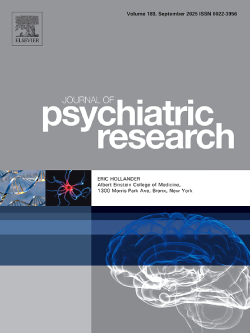 Read Article
Read ArticleFUNCTIONAL SKILLS TRAINING
Improvements in performance based measures of functional capacity and cognition after computerized functional skills training in older people with mild cognitive impairment and healthy comparators
Harvey et al., Psychiatry Res. (2024)
Psychiatry Research
Improvements in performance based measures of functional capacity and cognition after computerized functional skills training in older people with mild cognitive impairment and healthy comparators

SUMMARY
A computerized skills training intervention, FUNSAT, previously produced training-related gains in cognition in MCI and in comparators with normal cognition (NC). A new remotely delivered version of FUNSAT was, in this study, administered to a new sample of participants with NC and MCI.
Computerized functional skills training improved performance-based measures of cognition functional capacity. Changes were 3–4 times as large as expected practice effects. Changes in these two outcomes were similar in magnitude in participants with MCI and normal cognition. Computerized cognitive training added to skills training led to greater gains per training session.
 Read Article
Read ArticleFUNCTIONAL SKILLS TRAINING
Computerized Cognitive and Skills Training in Older People with Mild Cognitive Impairment: Using Ecological Momentary Assessment to Index Treatment Related Changes in Real-World Performance of Technology-Dependent Functional Tasks
Dowell-Esquivell et al., American Journal of Geriatric Psychiatry (2024)
American Journal of Geriatric Psychiatry
Computerized Cognitive and Skills Training in Older People with Mild Cognitive Impairment: Using Ecological Momentary Assessment to Index Treatment Related Changes in Real-World Performance of Technology-Dependent Functional Tasks

SUMMARY
The study addressed the question of whether a fully remote cognitive and functional skills training program improved real-world performance of technology-based tasks, measured with daily ecological momentary assessment (EMA) in older adults with normal cognition and mild cognitive impairments.
EMA assessments demonstrated statistically significant increases in activity of both trained and untrained technology-related activities. These findings provide compelling evidence that a fully remote functional skills training program is both practical and efficacious, as well as providing benefits for real-world functioning.
 Read Article
Read ArticleFUNCTIONAL SKILLS TRAINING
Association of Racial and Ethnic Status with Performance of Technology-Related Functional Skills: Associations with Baseline Performance and Gains with Training
Grant Akalonu et al., American Journal of Geriatric Psychiatry Poster Presentation (2024)
American Journal of Geriatric Psychiatry Poster Presentation
Association of Racial and Ethnic Status with Performance of Technology-Related Functional Skills: Associations with Baseline Performance and Gains with Training

SUMMARY
In this study we hypothesized that educational attainment and baseline cognitive status would predict lower baseline performance on technology tasks, but that training gains would show a reduced correlation with these factors compared to baseline performance. Racial and ethnic status were not expected to correlate negatively with training gains, particularly after consideration cognitive status and academic achievement.
Minority status individuals performed more poorly on baseline assessments of technology-related everyday activities than white participants and Black participants also had more cognitive impairment and reduced educational attainment. However, training gains were greater for the participants with more baseline challenges and their gains with training were significantly greater than white participants. Thus, functional skills training, although moderated by baseline impairments, overcame baseline differences in performance.
 Read Article
Read ArticleFUNCTIONAL SKILLS TRAINING
Early Prediction of Full Mastery of 6 Technology-Based Functional Skills in a Computerized Skills Training Program for Individuals with Mild Cognitive Impairment
Dowell-Esquivell et al., American Journal of Geriatric Psychiatry Poster Presentation (2024)
International Psychogeriatrics
Early prediction of mastery of a computerized functional skills training program in participants with mild cognitive impairment

SUMMARY
Combining computerized cognitive training (CCT) and functional skills training software (FUNSAT) produced improvements in 6 functional skills in MCI, with effect sizes >0.75. However, 4% of HC and 35% of MCI participants failed to master all 6 tasks. We address early identification of characteristics that identify participants who do not graduate, to improve later interventions.
More baseline errors, but not completion times, predicted failure to master all FUNSAT tasks. Accuracy of identification of eventual mastery was exceptional. Detection of risk to fail to master training tasks is possible in the first 15 minutes of the baseline assessment.
 Read Article
Read ArticleFUNCTIONAL SKILLS TRAINING
Computerized Cognitive Skills Training in Older People With Mild Cognitive Impairment: Using Ecological Momentary Assessment to Index Treatment-Related Changes in Real-World Performance of Technology-Dependent Functional Tasks
American Journal of Geriatric Psychiatry (2024)
American Journal of Geriatric Psychiatry
Computerized Cognitive Skills Training in Older People With Mild Cognitive Impairment: Using Ecological Momentary Assessment to Index Treatment-Related Changes in Real-World Performance of Technology-Dependent Functional Tasks

SUMMARY
The study addressed the question of whether a fully remote cognitive and functional skills training program improved real-world performance of technology-based tasks, measured with daily ecological momentary assessment (EMA) in older adults with normal cognition and mild cognitive impairments.
EMA assessments demonstrated statistically significant increases in activity of both trained and untrained technology-related activities. Moreover, the degree of training gains was found to be a significant predictor of real-world performance in domains of technology utilization. These findings provide compelling evidence that a fully remote functional skills training program is both practical and efficacious, as well as providing benefits for real-world functioning.
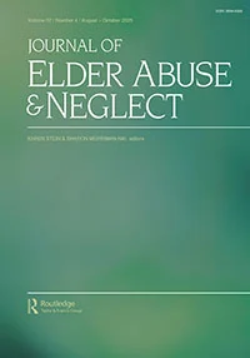 Read Article
Read ArticleFUNCTIONAL SKILLS ASSESSMENT
Novel methods for assessment of vulnerability to financial exploitation (FE)
Beach et al., Journal of Elder Abuse & Neglect (2023)
Journal of Elder Abuse & Neglect
Novel methods for assessment of vulnerability to financial exploitation

SUMMARY
Financial exploitation (FE) is a complex problem influenced by many factors. This article introduces two novel methods for assessment of FE vulnerability: (1) performance-based measures of financial skills using web-based simulations of common financial tasks; (2) scam vulnerability measures based on credibility ratings of common scam scenarios.
On the scenario-based measures, older adults who were male, younger, African American, less educated, and lower income showed higher FE vulnerability. Higher scam vulnerability was also related to poorer performance on the simulated financial tasks, lower cognitive function, less experience with technology, more financial conflict/anxiety, more impulsivity, and more stranger-initiated FE. Findings indicate that these novel measures show promise as valid indicators of vulnerability to FE.
 Read Article
Read ArticleFUNCTIONAL SKILLS TRAINING
Comparing the Effects of Combined Cognitive and Functional Skills Training to Skills Training Alone: Burst Training Increases Training Gains without Increasing Drop-outs
Harvey et al., Clinical Trials on Alzheimer’s Disease (CTAD), Poster Presentation (2023)
Clinical Trials on Alzheimer’s Disease (CTAD), Poster Presentation
Comparing the Effects of Combined Cognitive and Functional Skills Training to Skills Training Alone: Burst Training Increases Training Gains without Increasing Drop-outs

SUMMARY
Previous studies have found that computerized cognitive training augments skills training benefits, on both trained skills and cognitive performance. However, dropout rates were higher for MCI participants asked to do Concurrent Training. Question: Can we bypass the dropouts with burst cognitive training?
The result of the study saw substantial training gains with remote training across conditions and populations. Training gains were highly similar to previous in-person studies. Gains are facilitated by combined training. There were fewer total training sessions because of the design. Drop out was markedly lower than previous study with concurrent skills and cognitive training.
 Read Article
Read ArticleFUNCTIONAL SKILLS TRAINING
Early Prediction of Full Mastery of a Computerized Functional Skills Training Program in Participants with Mild Cognitive Impairment
Courtney Dowell-Esquivel et al., Cognitive Remediation in Psychiatry, Columbia Poster Presentation (2023)
Cognitive Remediation in Psychiatry, Columbia Poster Presentation
Early Prediction of Full Mastery of a Computerized Functional Skills Training Program in Participants with Mild Cognitive Impairment

SUMMARY
Computerized cognitive training and skills training have been found to lead to improvements in cognition and skills performance. Mastery of all the tasks is achieved by less than 100% of trainees. Some of the trainees do not master any of the tasks, suggesting that training could possibly modified to make it more successful. However, early identification of high- risk cases would be required in order to modify training strategies on a momentary basis. How early can these cases be identified: baseline, first training? Is it longer time or more errors?
Non-graduators can be identified with high accuracy at the baseline assessment of the first task in the battery. Thus, errors during the first 15 minutes of assessment are the best predictor of 12- week training outcomes, suggesting that alternative training streams could be developed and deployed to participants at high risk of failure to master all tasks.
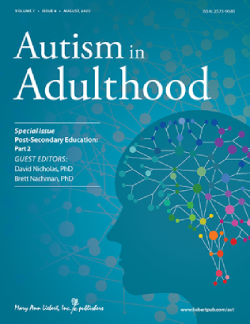 Read Article
Read ArticleFUNCTIONAL SKILLS ASSESSMENT
Piloting a Novel Daily Living Skills Assessment in Autistic Adolescents and Young Adults
Wulff et al. Autism in Adulthood (2023), Published Online Ahead of Print
Autism in Adulthood
Piloting a Novel Daily Living Skills Assessment in Autistic Adolescents and Young Adults

SUMMARY
There are a few ecologically valid measurements of Daily Living Skills (DLS)—a critical component of adaptive functioning (AF)—for autistic adolescents and young adults. This is particularly important given that DLS predict outcomes as autistic adolescents transition to adulthood.
These results provide preliminary support for the use of a new performance-based ecologically valid assessment of DLS in an autistic population. Two CFSAT (FUNSAT) modules were well-tolerated and detected differences in DLS ability. Strong correlations with an existing measure of AF suggest evidence of construct validity. The EF was associated with CFSAT task performance in autistic individuals. Such a tool could help identify individuals who would benefit from a DLS intervention.
 Read Article
Read ArticleFUNCTIONAL SKILLS TRAINING
Computerized Cognitive and Functional Skills Training for Mild Cognitive Impairment: A fully remote treatment study
Harvey et al., The American Journal of Geriatric Psychiatry (2023)
The American Journal of Geriatric Psychiatry
Computerized Cognitive and Functional Skills Training for Mild Cognitive Impairment: A fully remote treatment study

SUMMARY
There is an increasing recognition that impairments in everyday functional skills as well as cognitive changes are seen in older people with mild cognitive impairment (MCI). However, Computerized Cognitive Training (CCT) alone does lead to the spontaneous learning of novel functional skills
This study replicated previous findings of substantial gains in FUNSAT performance with training in MCI, while demonstrating persistence post training and proving that remote training is feasible and efficacious. These data indicate that participants with significant cognitive challenges at baseline can still engage in and benefit from both functionally targeted and cognitively targeted training.
 Read Article
Read ArticleFUNCTIONAL SKILLS ASSESSMENT
Using Ecological Momentary Assessment to Index Real-world Treatment Gains From Remotely Delivered Cognitive and Functional Skills Training
Harvey et al. CNS Summit Poster Presentation (2022)
CNS Summit Poster Presentation
Using Ecological Momentary Assessment to Index Real-world Treatment Gains From Remotely Delivered Cognitive and Functional Skills Training

SUMMARY
Computerized cognitive training and skills training have been found to lead to improvements in cognition and skills performance. One of the arguments by skeptics is that cognitive training has no real-world benefit. It is the case that new functional skills are not acquired with cognitive training alone. In this study we used digital assessment (Ecological Momentary Assessment: EMA) data to evaluate real-world transfer of training.
We saw substantial training gains with remote training across conditions and populations; that gains are maintained post treatment; that EMA detects changes in trained and untrained tasks; that in person pharmacy visits decline and that technology facilitated refills are increased; increases in general technology usage are detected across populations.
 Read Article
Read ArticleFUNCTIONAL SKILLS TRAINING
Improvements in Cognitive Performance with Computerized Training in Older People with and without Cognitive Impairment: Synergistic Effects of Skills-Focused and Cognitive-Focused Strategies.
Harvey et al. The American Journal of Geriatric Psychiatry (In Press 2021)
The American Journal of Geriatric Psychiatry
Improvements in Cognitive Performance with Computerized Training in Older People with and without Cognitive Impairment: Synergistic Effects of Skills-Focused and Cognitive-Focused Strategies

SUMMARY
This study addressed the question of whether computerized functional skills training improved cognition in older people with normal cognition or cognitive impairments.
The findings of the study are that computerized functional skills training alone was associated with improvements in four of six cognitive domains assessed in participants with cognitive impairments. Overall, combined computerized cognitive and functional skills training led to greater improvements in all six domains of cognition across the two participant groups. These data suggest that both older people with cognitive impairments and normal cognition show evidence of plasticity in their cognitive functioning and that combining functional skills and cognitive training leads to wide-ranging cognitive improvements.
 Read Article
Read ArticleFUNCTIONAL SKILLS ASSESSMENT
Better functional capacity and cognitive performance in clozapine responders compared to non-responders: A cross-sectional study.
Nucifora Jr. et al. Schizophrenia Research (2020)
Schizophrenia Research
Better functional capacity and cognitive performance in clozapine responders compared to non-responders: A cross-sectional study

SUMMARY
In this study, the investigators examined clozapine treated patients and compared cognitive and functional capacity across response status using a validated computerized functional capacity assessment battery, the University of Miami Computer-Based Functional Assessment System (CFAS/FUNSAT). They hypothesized that the clozapine non-responders (UTRS) would be more impaired on cognitive and functional capacity measures than clozapine responders (TRS), since non-responders have had a more adverse course of illness.
They showed that patients who responded to clozapine (TRS) with improvements in symptomology also performed significantly better than clozapine non-responders (UTRS) on simulations of real world tasks and cognitive testing.
 Read Article
Read ArticleFUNCTIONAL SKILLS TRAINING
Evaluation of a Novel Technology-Based Program Designed to Assess and Train Everyday Skills in Older Adults.
Czaja et al. Innovation in Aging (2020)
Innovation in Aging
Evaluation of a Novel Technology-Based Program Designed to Assess and Train Everyday Skills in Older Adults

SUMMARY
Performance of everyday activities is often challenging for older adults. We evaluated a novel computer-based functional skills assessment and training (CFSAT/FUNSAT) program, which includes simulations of everyday tasks (e.g., money and medication management).
Both NC and CI participants demonstrated significant performance improvements across all tasks following training. The findings suggest that CFSAT/FUNSAT is an efficacious program for assessing and training everyday task performance. CFSAT/FUNSAT can ultimately be used as an intervention strategy to enhance functional independence for aging adults with and without cognitive impairments.
 Read Article
Read ArticleFUNCTIONAL SKILLS TRAINING
Helping older adults overcome the challenges of technology.
Harvey et al. Current Psychiatry (2020)

SUMMARY
Technology is pervasive, and for many people, it is central to their daily activities. Younger people who have been exposed to technology for their entire lives take this for granted, but older individuals often have had much less experience with it.
Some of the key conclusions are that clinicians should not assume that their patients have learned the skills required to actively participate in health care that requires the use of technology; that treatment for normal age-related cognitive changes is available with computerized cognitive training and that technology-based skills need to be taught separately from interventions that focus on cognitive enhancement.
 Read Article
Read ArticleFUNCTIONAL SKILLS TRAINING
The Computerized Functional Skills Assessment and Training Program: Sensitivity to Global Cognitive Impairment, Correlations with Cognitive Abilities, and Factor Structure.
Harvey et al. American Journal of Geriatric Psychiatry (2020)
American Journal of Geriatric Psychiatry
The Computerized Functional Skills Assessment and Training Program: Sensitivity to Global Cognitive Impairment, Correlations with Cognitive Abilities, and Factor Structure

SUMMARY
We evaluated a novel computer-based functional skills assessment and training (CFSAT/FUNSAT™) program, which includes ecologically valid simulations of six everyday technology-related tasks. In this report, we describe the psychometric properties of the assessment in terms of sensitivity to impairment, factor structure and correlations with cognitive performance.
The CFSAT/ FUNSAT™ is sensitive to functional impairments seen in cognitively impaired older adults. Cognitive performance and CFSAT/ FUNSAT™ scores were related but nonredundant. Thus, the CFSAT/ FUNSAT™ appears to identify functional deficits that could be targeted with skills training interventions, likely augmented by pharmacological or computerized cognitive training interventions.
 Read Article
Read ArticleFUNCTIONAL SKILLS TRAINING
A Computerized Functional Skills Assessment and Training Program Targeting Technology Based Everyday Functional Skills.
Harvey et al. Journal of Visual Experiments (2020)
Journal of Visual Experiments
A Computerized Functional Skills Assessment and Training Program Targeting Technology Based Everyday Functional Skills

SUMMARY
Today, many functional skills are technology-based, so development of a technology-based training program has broad importance. Here we present a computerized functional skills training program that was paired in half of the participants with a commercially available cognitive training (CCT) program.
CSFT/FUNSAT™ training led to substantial and rapid treatment gains with as few as 6 training sessions, with results applicable to both NC and MCI participants. Both participant groups evidenced substantial improvements in task performance. CCT supplementation led to similar CFST gains with half as many CFST training sessions. These findings replicate our previous findings with older patients with schizophrenia and a separate sample of healthy controls.
 Read Article
Read ArticleFUNCTIONAL SKILLS ASSESSMENT
Assessing functional performance using computer-based simulations of everyday activities
Czaja et al. Schizophenia Research (2017)
Schizophrenia Research
Assessing functional performance using computer-based simulations of everyday activities

SUMMARY
Current functional capacity (FC) measures for patients with schizophrenia typically involve informant assessments or are in paper and pencil format, requiring in-person administration by a skilled assessor. This approach presents logistic problems and limits the possibilities for remote assessment, an important issue for these patients. This study evaluated the feasibility of using a computer-based assessment battery, including simulations of everyday activities.
Our results show that it is feasible to use technology-based assessment protocols with older adults and patients with schizophrenia. The battery overcomes logistic constraints associated with current FC assessment protocols as the battery is computer-based, can be delivered remotely and does not require a healthcare professional for administration.
 Read Article
Read ArticleFUNCTIONAL SKILLS ASSESSMENT
A Novel Method for Direct Assessment of Everyday Competence Among Older Adults
Czaja et al. Journal of Alzheimer’s Disease (2017)
Journal of Alzheimer’s Disease
A Novel Method for Direct Assessment of Everyday Competence Among Older Adults

SUMMARY
This paper reports on a novel technology-based assessment battery of everyday competence that includes ecologically valid simulations of daily activities important to independence.
The results show that it is feasible to use a technology-based assessment battery of everyday tasks with both non-cognitively impaired older adults and older adults with MCI. The use of this type of battery can overcome many of the logistic constraints associated with current functional assessment protocols.
 Read Article
Read ArticleFUNCTIONAL SKILLS TRAINING
Computerized Functional Skills training in Older People with Schizophrenia
Harvey et al. ACNP Skills Training Poster Presentation (2016)
ACNP Skills Training Poster Presentation
Computerized Functional Skills training in Older People with Schizophrenia

SUMMARY
Cognitive enhancement with pharmacological or remediation strategies is a topic of major interest in severe mental illness. Despite success in enhancing cognitive performance, these intervention strategies have not been shown to improve their distal target of everyday functioning without additional skills-based interventions. In many locations, however, there is no availability of psychosocial interventions, leading us to develop a technology-based skills training system and testing its efficacy in this study.
Computerized skills training without a human trainer significantly improved functional capacity in healthy older people and people with schizophrenia. These results suggest that computer delivered functional skills training can improve functional capacity and that this intervention may be an important adjunct to pharmacological or remediation focused cognitive enhancement, with a goal of improving everyday outcomes through a combination of improved cognitive functioning and improvement of functional capacity.
LASSI™ Publications
LASSI-L™: Original paper & pencil based research-focused cognitive challenge test.
LASSI-BC™: Initial research-focused computerized version of the LASSI-L.
LASSI-D™: Brief fully self-administered commercial digital version of the LASSI-L.
 Read Article
Read ArticleDigital LASSI-D
Development and comparison of alternate forms of the Loewenstein-Acevedo Scales for Semantic Interference and Learning-Digital Version (LASSI-D) in older participants with amnestic mild cognitive impairment and normal cognition
Journal of Alzheimer’s Disease (2025)
Journal of Alzheimer’s Disease
Development and comparison of alternate forms of the Loewenstein-Acevedo Scales for Semantic Interference and Learning-Digital Version (LASSI-D) in older participants with amnestic mild cognitive impairment and normal cognition

SUMMARY
Early detection of amnestic mild cognitive impairment (aMCI) is crucial for early intervention. The Loewenstein-Acevedo Scales for Semantic Interference and Learning (LASSI-L) identify risk for cognitive decline by measuring proactive semantic interference (PSI). PSI correlates with critical Alzheimer’s disease (AD) biomarkers, predicting decline. A digital version of the LASSI™, the LASSI-D™, was highly convergent with the LASSI-L in older participants. We developed three alternative forms of the LASSI-D™, examining convergence across forms and retest changes, to evaluate utility as a repeated-measure
The three digital alternative forms of the LASSI™ (LASSI-D™) were highly convergent with each other and the LASSI-L. The findings provide evidence of the utility of a cloud-based, self-administered cognitive challenge test with alternative forms.
 Read Article
Read ArticleDigital LASSI-D
Digital Migration of the Loewenstein Acevedo Scales for Semantic Interference and Learning (LASSI-L): Development and Validation Study in Older Participants
Harvey et al., JMIR Mental Health (2025)
JMIR Mental Health
Digital Migration of the Loewenstein Acevedo Scales for Semantic Interference and Learning (LASSI-L): Development and Validation Study in Older Participants

SUMMARY
This study reports on the development and initial validation of a self-administered computerized version of the Loewenstein-Acevedo Scales for Semantic Interference (LASSI), the digital LASSI (LASSI-D). A self-administered digital version, with an artificial intelligence–generated avatar assistant, was the migrated assessment.
The results for the digital migration of the LASSI-D were highly convergent with the legacy LASSI-L. Across all indices of similarity, including sensitivity, criterion validity, classification accuracy, and performance, the versions converged across languages. The current data provide convincing evidence of the use of a fully self-administered digitally migrated cognitive challenge test.
 Read Article
Read ArticleLASSI-L as a Screening Instrument
Unraveling progressive verbal memory deficits in Huntington’s disease: insights from the LASSI-L
Sierra Luis A. et al., Frontiers in Neurology (2025)
Frontiers in Neurology
Unraveling progressive verbal memory deficits in Huntington’s disease: insights from the LASSI-L

SUMMARY
Huntington’s disease (HD) is characterized by progressive cognitive decline, with early deficits often preceding motor symptoms. The Loewenstein-Acevedo Scales for Semantic Interference and Learning (LASSI-L) captures many types of deficits in verbal memory including susceptibility to interference. The current study aims to delineate the progression of these deficits across different stages of HD.
The LASSI-L appears to be a useful tool for detecting early and progressive cognitive changes in Huntington’s disease, particularly by capturing the sequential nature of verbal memory deficits, including early vulnerability to interference. These findings suggest that the LASSI-L may help refine HD staging by integrating sequential neuropsychological markers of cognitive decline.
 Read Article
Read ArticleComputerized LASSI-BC
The computerized LASSI-BC Test versus the Standard LASSI-L Paper-and-Pencil Version in Community-Based-Samples
Curiel-Cid et al. Advances in Alzheimer’s Disease (2024)
Advances in Alzheimer’s Disease
The computerized LASSI-BC Test versus the Standard LASSI-L Paper-and-Pencil Version in Community-Based-Samples

SUMMARY
Proactive Semantic Interference (PSI) and failure to recover from PSI (frPSI), are novel constructs assessed by the LASSI-L. These measures are sensitive to cognitive changes in early Mild Cognitive Impairment (MCI) and preclinical AD determined by Aβ load using PET. The goal of this study was to compare a new computerized version of the LASSI-L (LASSI-Brief Computerized) to the standard paper-and-pencil version of the test.
Overall, the LASSI-BC was comparable, and in some ways, superior to the paper-and-pencil LASSI-L. Advantages of the LASSI-BC include a more standardized administration, suitability for remote assessment, and an automated scoring mechanism that can be verified by a built-in audio recording of responses.
 Read Article
Read ArticleLASSI-L as a Screening Instrument
Different aspects of failing to recover from proactive semantic interference predicts rate of progression from amnestic mild cognitive impairment to dementia
Curiel-Cid et al. Front Aging Neurosci. (2024)
Frontiers in Aging Neuroscience
Different aspects of failing to recover from proactive semantic interference predicts rate of progression from amnestic mild cognitive impairment to dementia

SUMMARY
This study investigated the role of proactive semantic interference (frPSI) in predicting the progression of amnestic Mild Cognitive Impairment (aMCI) to dementia, taking into account various cognitive and biological factors.
These findings after adjustment for demographic and biological markers of Alzheimer’s Disease, suggest that assessing frPSI may offer valuable insights into the risk of dementia progression in individuals with aMCI.
 Read Article
Read ArticleLASSI-L as a Screening Instrument
Different aspects of failing to recover from proactive semantic interference predicts rate of progression from amnestic mild cognitive impairment to dementia
Frontiers in Aging Neuroscience (2024)
Aging Neuroscience
Different aspects of failing to recover from proactive semantic interference predicts rate of progression from amnestic mild cognitive impairment to dementia

SUMMARY
This study investigated the role of proactive semantic interference (frPSI) in predicting the progression of amnestic Mild Cognitive Impairment (aMCI) to dementia, taking into account various cognitive and biological factors.
These findings after adjustment for demographic and biological markers of Alzheimer’s Disease, suggest that assessing frPSI may offer valuable insights into the risk of dementia progression in individuals with aMCI.
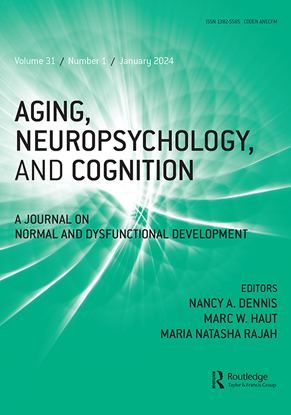 Read Article
Read ArticleLASSI-L as a Screening Instrument
Developing a Danish version of the LASSI-L test – reliability and predictive value in patients with mild cognitive impairment, mild dementia due to AD and subjective cognitive decline
Vogel et al. Aging, Neuropsychol Cogn. (2024)
Aging, Neuropsychol Cogn.
Developing a Danish version of the LASSI-L test – reliability and predictive value in patients with mild cognitive impairment, mild dementia due to AD and subjective cognitive decline

SUMMARY
The Loewenstein-Acevedo Scales for Semantic Interference and Learning (LASSI-L), has shown promising diagnostic properties for the diagnosis of Mild Cognitive Impairment (MCI) and dementia. LASSI-L may also be efficient in predicting cognitive decline in at-risk individuals. There is an unmet need to examine the diagnostic properties of the LASSI-L in a Danish context where traditional neuropsychological tests are typically applied when diagnosing possible dementia disorders. LASSI-L had high reliability and promising predictive value in the diagnosis of aMCI and mild AD due to AD.
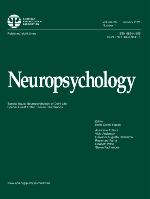 Read Article
Read ArticleLASSI-L as a Screening Instrument
Vulnerability to semantic and phonological interference in normal aging and amnestic mild cognitive impairment (aMCI)
Chasles et al. Neuropsychology (Feb. 2024)
Neuropsychology
Vulnerability to semantic and phonological interference in normal aging and amnestic mild cognitive impairment (aMCI)

SUMMARY
The objective was to determine whether the increased vulnerability to semantic interference previously observed in amnestic mild cognitive impairment (aMCI) is specifically associated with semantic material or if it also affects other types of material, suggesting generalized executive and inhibitory impairment.
The results suggest that aMCI present with broad difficulties in source memory and inhibition, but that impaired deep semantic processing results in additional semantic intrusion errors during proactive interference and impacts their ability to show good recall after an interference list (greater semantic retroactive interference).
 Read Article
Read ArticleComputerized LASSI-BC
A Novel Computerized Cognitive Test for the Detection of Mild Cognitive Impairment and Its Association with Neurodegeneration in Alzheimer’s Disease Prone Brain Regions
Curiel et al., Advances in Alzheimer’s Disease (2023)
Advances in Alzheimer’s Disease
A Novel Computerized Cognitive Test for the Detection of Mild Cognitive Impairment and Its Association with Neurodegeneration in Alzheimer’s Disease Prone Brain Regions

SUMMARY
In this study, the focus was on expanding previous work by determining whether a digitized cognitive stress test, the Loewenstein-Acevedo Scales for Semantic Interference and Learning, Brief Computerized Version (LASSI-BC) could differentiate between Cognitively Unimpaired (CU) and amnestic Mild Cognitive Impairment (aMCI) groups. A second focus was to correlate LASSI-BC performance to volumetric reductions in AD-prone brain regions.
Results indicated that, even after adjusting for initial learning ability, the failure to recover from proactive semantic interference (frPSI) on the LASSI-BC differentiated between CU and aMCI groups. Further, frPSI on the LASSI-BC was associated with volumetric reductions in the hippocampus, amygdala, inferior temporal lobes, precuneus, and posterior cingulate.
 Read Article
Read ArticleLASSI-L as a Screening Instrument
LASSI-L detects early cognitive changes in pre-motor manifest Huntington’s disease: a replication and validation study
Sierra Luis A. et al., Frontiers in Neurology (2023)
Frontiers in Neurology
LASSI-L detects early cognitive changes in pre-motor manifest Huntington’s disease: a replication and validation study

SUMMARY
Cognitive decline is an important early sign in premotor manifest Huntington’s disease (preHD) and is characterized by deficits across multiple domains including executive function, psychomotor processing speed, and memory retrieval. Prior work suggested that the Loewenstein-Acevedo Scale for Semantic Interference and Learning (LASSI-L)–a verbal learning task that simultaneously targets these domains – could capture early cognitive changes in preHD. The current study aimed to replicate, validate and further analyze the LASSI-L in preHD using larger datasets.
The study found that LASSI-L is a sensitive, reliable, efficient tool for detecting cognitive decline in preHD.
 Read Article
Read ArticleDifferential Diagnosis – LASSI-L and Amyloid Markers of Mild Cognitive Impairment
A novel method of evaluating semantic intrusion errors to distinguish between amyloid positive and negative groups on the Alzheimer’s disease continuum.
Curiel et. al Journal of Psychiatric Research (2018)
Cognitive and Behavioral Neurology
Using the LASSI-L to Detect Robust Interference Effects in Premanifest Huntington Disease

SUMMARY
Diagnosis of manifest Huntington disease (HD) is based primarily on motor symptoms, but premanifest HD (preHD) is often associated with subtle cognitive decline. Objective of the study was to determine the utility of the LASSI–L for detecting early cognitive decline in individuals with preHD and to compare the results of the LASSI–L with those of commonly used neuropsychological tests in HD.
The study found that LASSI–L is a sensitive instrument for detecting early interference effects in individuals with preHD that outperforms commonly used neuropsychological tests. The LASSI–L could be a useful addition to clinical and research protocols involving individuals with preHD.
 Read Article
Read ArticleComputerized LASSI-BC
A Novel Computerized Cognitive Stress Test to Detect Mild Cognitive Impairment.
Curiel-Cid, R. et al. The Journal of Prevention of Alzheimer’s Disease(2021)
The Journal of Prevention of Alzheimer’s Disease
A Novel Computerized Cognitive Stress Test to Detect Mild Cognitive Impairment

SUMMARY
The psychometric properties and clinical utility of the brief computerized version of the LASSI-L was evaluated, together with its ability to differentiate older adults who are cognitively normal (CN) from those with amnestic Mild Cognitive Impairment (aMCI).
The conclusion was that the LASSI-BC, a brief computerized version of the LASSI-L is a valid and useful cognitive tool for the detection of aMCI among older adults.
 Read Article
Read ArticleLASSI-L in Longitudinal Prediction of Cognitive States
Intrusion Errors and Progression of Cognitive Deficits in Older Adults with Mild Cognitive Impairment and PreMCI States.
Crocco, et al. Dementia and geriatric cognitive disorders (2021)
Dementia and geriatric cognitive disorders
Intrusion Errors and Progression of Cognitive Deficits in Older Adults with Mild Cognitive Impairment and PreMCI States

SUMMARY
Among persons with amnestic mild cognitive impairment (aMCI), intrusion errors on subscales that measure proactive semantic interference (PSI) may be among the earliest behavioral markers of elevated Alzheimer’s disease brain pathology. While there has been considerable cross-sectional work in the area, it is presently unknown whether semantic intrusion errors are predictive of progression of cognitive impairment in aMCI or PreMCI (not cognitively normal but not meeting full criteria for MCI).
This study examined the extent to which the percentage of semantic intrusion errors (PIE) based on total responses on a novel cognitive stress test, the Loewenstein-Acevedo Scales for Semantic Interference and Learning (LASSI-L), could predict clinical/cognitive outcomes over an average 26-month period in older adults initially diagnosed with aMCI, PreMCI, and normal cognition.
The preliminary findings indicate that PIE on LASSI-L subscales that measure PSI may be a useful predictor of clinical progression overtime in at-risk older adults.
 Read Article
Read ArticleLASSI-L as a Screening Instrument
A Brief Version of the LASSI-L Detects Prodromal Alzheimer’s Disease States.
Crocco et al. Journal of Alzheimer’s Disease (2020)
Journal of Alzheimer’s Disease
A Brief Version of the LASSI-L Detects Prodromal Alzheimer's Disease States

SUMMARY
The Loewenstein-Acevedo Scales for Semantic Interference and Learning (LASSI-L) is an increasingly utilized cognitive stress test designed to identify early cognitive changes associated with incipient neurodegenerative disease. The objective was to examine previously derived cut-points for cognitively unimpaired older adults that were suggestive of performance impairment on multiple subscales of the LASSI-L.
Only 7.7% of HC were incorrectly classified as having impairments. A modest number of LASSI-L subscales taking approximately 8 minutes to administer, had excellent discriminative ability using established cut-offs among individuals with presumptive stages of AD. This has potential implications for both clinical practice and clinical research settings targeting AD during early prodromal stages.
 Read Article
Read ArticleDifferential Diagnosis: LASSI-L and amyloid Markers of Mild Cognitive Impairment
The relationship of semantic intrusions to different etiological subtypes of MCI and cognitively healthy older adults.
Kitaigorodsky et al. Alzheimers’ and Dementia (2021)
Alzheimers’ and Dementia
The relationship of semantic intrusions to different etiological subtypes of MCI and cognitively healthy older adults

SUMMARY
There is increasing evidence that susceptibility to proactive semantic interference (PSI) and the failure to recover from PSI (frPSI) as evidenced by intrusion errors may be early cognitive markers of both preclinical and prodromal Alzheimer’s disease (AD). One hundred forty-five participants were administered extensive clinical and neuropsychological evaluations including the Loewenstein-Acevedo Scales for Semantic Interference and Learning (LASSI-L), a sensitive cognitive stress test measuring PSI and frPSI. Participants also underwent structural magnetic resonance imaging (MRI) and amyloid positron emission tomography/computed tomography (PET/CT) imaging.
Semantic intrusion errors on the LASSI-L occur much less frequently in persons who have different types of non-AD-related MCI and may be used as an early cognitive marker of prodromal AD.
 Read Article
Read ArticleDifferential Diagnosis: LASSI-L and amyloid Markers of Mild Cognitive Impairment
A novel method of evaluating semantic intrusion errors to distinguish between amyloid positive and negative groups on the Alzheimer’s disease continuum.
Curiel et al. Journal of Psychiatric Research (2020)
Journal of Psychiatric Research
A novel method of evaluating semantic intrusion errors to distinguish between amyloid positive and negative groups on the Alzheimer's disease continuum

SUMMARY
The development and validation of clinical outcome measures to detect early cognitive decline associated with Alzheimer’s disease (AD) biomarkers is imperative. Semantic intrusions on the Loewenstein Acevedo Scales of Semantic Interference and Learning (LASSI-L) has outperformed widely used cognitive measures as an early correlate of elevated brain amyloid in prodromal AD and has distinguished those with amnestic mild cognitive impairment (aMCI) and high amyloid load from aMCI attributable to other non-AD conditions.
Since intrusion errors on memory tasks vary widely, we employed a novel method that accounts for the percentage of intrusion errors (PIE) in relation to total responses. Individuals with either high or low amyloid load across the spectrum of aMCI and dementia and amyloid negative cognitively normal older adults (CN) were studied.
PIE, a novel and sensitive index of early memory dysfunction, demonstrated high levels of sensitivity and specificity in differentiating CN from amyloid positive persons with preclinical AD. Mean levels of PIE are higher for amyloid positive aMCI and dementia participants relative to their amyloid negative counterparts.
 Read Article
Read ArticleLASSI-L versus other Neuropsychological Measures
Memory Impairment in Relapsing-Remitting Multiple Sclerosis using a challenging semantic interference task.
Guiu et. al Front Neurol. (2020)
Frontiers in Neurology
Memory Impairment in Relapsing-Remitting Multiple Sclerosis Using a Challenging Semantic Interference Task

SUMMARY
Episodic memory is frequently impaired in Multiple Sclerosis (MS), but the cognitive characteristics and neuropsychological processes involved remain controversial. Our aim was to study episodic memory dysfunction in MS, using the LASSI-L, a novel memory-based cognitive stress test that uses a new paradigm that capitalizes on semantic interference
We found that deficits in maximum learning, difficulties in recovery from the effects of proactive semantic interference and retroactive semantic interference are three important breakdowns in episodic memory deficits among patients with MS. The LASSI-L showed good psychometric and diagnostic properties. Overall, our study supports the utility of the LASSI-L, as a new cognitive test, useful for neuropsychological assessment in MS in clinical and research settings.
 Read Article
Read ArticleLASSI-L in Diverse Cultural Populations
Semantic intrusion error ratio distinguishes between cognitively impaired and cognitively intact African American older adults.
Capp et. Al J Alzheimers Dis. (2019)
Journal of Alzheimer’s Disease
Semantic Intrusion Error Ratio Distinguishes Between Cognitively Impaired and Cognitively Intact African American Older Adults

SUMMARY
Semantic intrusion errors on memory tests may represent very early cognitive changes associated with elevated Alzheimer’s disease pathology within the brain, including amyloid-β (Aβ). Subscales that measure proactive semantic interference (PSI) and intrusions related to PSI on the Loewenstein Acevedo Scales of Semantic Interference and Learning (LASSI-L) have been associated with high levels of brain amyloid load, structural changes on brain MRI in Hispanic and non-Hispanic groups. It is presently unknown whether intrusion errors or other measures of the LASSI-L can differentiate between African-American (AA) older adults diagnosed with amnestic mild cognitive impairment (aMCI) or classified as cognitively normal (CN).
With and without statistical adjustment for literacy, AA aMCI participants scored lower on all LASSI-L measures. ROC analyses revealed an area under the curve exceeding 90% and correctly classified 86% of AA aMCI with 82% specificity for AA CN participants. Percentage of intrusion errors on the LASSI-L subscales susceptible to PSI differentiated AA aMCI from AA CN. This adds to emerging evidence indicating that the LASSI-L may be culturally appropriate and can differentiate between aMCI and CN in diverse ethnic/cultural groups.
 Read Article
Read ArticleLASSI-L in Middle Age Children of Late-onset AD Patients
Brain Structural and Amyloid Correlates of Recovery from Semantic Interference in Cognitively Normal Individuals with or without family History of Late-Onset Alzheimer’s Disease.
Abulafia et. al J Neuropsychiatry Clin Neurosci. (2019)
Journal of Neuropsychiatry and Clinical Neuroscience
Brain Structural and Amyloid Correlates of Recovery From Semantic Interference in Cognitively Normal Individuals With or Without Family History of Late-Onset Alzheimer's Disease

SUMMARY
Failure to recover from proactive semantic interference (frPSI) has been shown to be more sensitive than traditional cognitive measures in different populations with preclinical Alzheimer’s disease. The authors sought to characterize the structural and amyloid in vivo correlates of frPSI in cognitively normal offspring of patients with late-onset Alzheimer’s disease (O-LOAD), compared with individuals without a family history of neurodegenerative disorders (CS).
Recovery from proactive semantic interference (frPSI) and RAVLT delayed recall were lower in O-LOAD cases. Better recovery from retroactive semantic interference was associated with less amyloid load in the left temporal lobe in O-LOAD but not CS. In middle-aged cognitively normal individuals with one parent affected with LOAD, frPSI was impaired compared with persons without a family history of LOAD.
 Read Article
Read ArticleLASSI-L in Diverse Cultural Populations
A Cognitive Stress Test for prodromal Alzheimer’s disease: Multi-ethnic generalizability.
Curiel et. al Alzheimer’s Dement (Amst) (2019)
Alzheimer’s & Dementia
A cognitive stress test for prodromal Alzheimer's disease: Multiethnic generalizability

SUMMARY
Culturally fair cognitive assessments sensitive to detecting changes associated with prodromal Alzheimer’s disease are needed. Performance of Hispanic and non-Hispanic older adults on the Loewenstein-Acevedo Scale of Semantic Interference and Learning (LASSI-L) was examined in persons with amnestic mild cognitive impairment (aMCI) or normal cognition. The association between a novel cognitive marker, the failure to recover from proactive semantic interference (frPSI), and cortical thinning was explored.
In diverse populations, LASSI-L performance differentiated patients with aMCI from cognitively normal older adults and was associated with thinning in Alzheimer’s disease-prone regions, suggesting its clinical utility.
 Read Article
Read ArticleDifferential Diagnosis – LASSI-L and Amyloid Markers of PreClinical AD
Utilizing Semantic Intrusions to Identify Amyloid Positivity in Mild Cognitive Impairment.
Loewenstein et. al Neurology (2018)
Neurology
Utilizing semantic intrusions to identify amyloid positivity in mild cognitive impairment

SUMMARY
Semantic intrusion (SI) errors may highlight specific breakdowns in memory associated with preclinical Alzheimer disease (AD); however, there have been no investigations to determine whether SI errors occur with greater frequency in persons with amnestic mild cognitive impairment (aMCI) confirmed as amyloid positive (Amy+) vs those who have clinical symptoms of aMCI-AD with negative amyloid scans (suspected non-AD pathology [SNAP]) or persons who are diagnosed with other brain disorders affecting cognition.
SIs on the LASSI-L related to PSI and frPSI uniquely differentiated Amy+ and Amy- participants with aMCI and likely reflect deficits with inhibition and source memory in preclinical AD not captured by traditional cognitive measures. This may represent a specific, noninvasive test successful at distinguishing cases with true AD from those with SNAP.
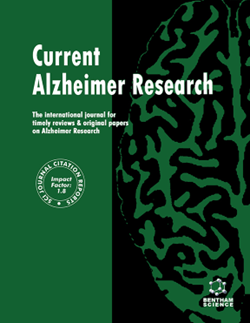 Read Article
Read ArticleDifferential Diagnosis – LASSI-L and Amyloid Markers of Mild Cognitive Impairment
Semantic Intrusions and Failure to Recover from Proactive Semantic Interference in Amnestic Mild Cognitive Impairment: Relationship to Amyloid Load and Cortical Thickness.
Curiel et. al Curr Alzheimer Res. (2018)
Current Alzheimer's Research
Intrusions and Failure to Recover From Semantic Interference in Mild Cognitive Impairment: Relationship to Amyloid and Cortical Thickness

SUMMARY
Accumulating evidence indicates that the failure to recover from the effects of proactive semantic interference [frPSI] represents an early cognitive manifestation of preclinical Alzheimer’s disease. A limitation of this novel paradigm has been a singular focus on the number of targets correctly recalled, without examining co-occurring semantic intrusions [SI] that may highlight specific breakdowns in memory. We focused on SI and their relationship to amyloid load and regional cortical thickness among persons with amnestic mild cognitive impairment (aMCI).
Semantic intrusions on measures susceptible to frPSI related to greater brain amyloid load and lower cortical thickness. These findings further support the hypothesis that frPSI, as expressed by the percentage of intrusions, may be a cognitive marker of initial neurodegeneration and may serve as an early and distinguishing test for preclinical AD that may be used in primary care or clinical trial settings.
 Read Article
Read ArticleLASSI-L versus other Neuropsychological Measures
Comparison between FCSRT and LASSI-L to Detect Early Stage Alzheimer’s Disease.
Matias et. al J Alzheimers Dis. (2018)
Journal of Alzheimer’s Disease
Comparison between FCSRT and LASSI-L to Detect Early Stage Alzheimer's Disease

SUMMARY
The Free and Cued Selective Reminding Test (FCSRT) is the most accurate test for the diagnosis of prodromal Alzheimer’s disease (AD). Recently, a novel cognitive test, the Loewenstein-Acevedo Scale for Semantic Interference and Learning (LASSI-L), has been developed in order to provide an early diagnosis. The objective was to compare the diagnostic accuracy of the FCSRT and the LASSI-L for the diagnosis of AD in its preclinical and prodromal stages using 18F-fluorodeoxyglucose positron emission tomography (FDG-PET) as a reference.
The LASSI-L, a cognitive stress test, was superior to FCSRT in the prediction of AD features on FDG-PET. This emphasizes the possibility to advance toward an earlier diagnosis of AD from a clinical perspective.
 Read Article
Read ArticleLASSI-L versus other Neuropsychological Measures
Novel Cognitive Paradigms for the Detection of Memory Impairment in Preclinical Alzheimer’s Disease.
Loewenstein et. al Assessment (2018)
Assessment
Novel Cognitive Paradigms for the Detection of Memory Impairment in Preclinical Alzheimer's Disease

SUMMARY
In spite of advances in neuroimaging and other brain biomarkers to assess preclinical Alzheimer’s disease (AD), cognitive assessment has relied on traditional memory paradigms developed well over six decades ago. This has led to a growing concern about their effectiveness in the early diagnosis of AD which is essential to develop preventive and early targeted interventions before the occurrence of multisystem brain degeneration. We describe the development of novel tests that are more cognitively challenging, minimize variability in learning strategies, enhance initial acquisition and retrieval using cues, and exploit vulnerabilities in persons with incipient AD such as the susceptibility to proactive semantic interference, and failure to recover from proactive semantic interference.
The advantages of various novel memory assessment paradigms are examined as well as how they compare with traditional neuropsychological assessments of memory. Finally, future directions for the development of more effective assessment paradigms are suggested.
 Read Article
Read ArticleLASSI-L versus other Neuropsychological Measures
Individual cognitive and depressive traits associated with maternal versus paternal family history of Late-onset Alzheimer’s disease: Proactive semantic interference versus standard neuropsychological assessments.
Wilson et. al Personalized Medicine in Psychiatry (2018)
Personalized Medicine in Psychiatry
Individual cognitive and depressive traits associated with maternal versus paternal family history of Late-onset Alzheimer’s disease: Proactive semantic interference versus standard neuropsychological assessments

SUMMARY
The main objective of this study was to assess cognitive and depressive manifestations associated with Alzheimer’s disease in middle-aged asymptomatic individuals with maternal versus paternal family history of the disease using standardly used neuropsychological measures and a novel cognitive stress test, the Loewenstein-Acevedo Scale for Semantic Interference and Learning (LASSI-L).
This study highlights the value of semantic interference paradigms in early detection of Alzheimer’s and emphasizes the importance of studying maternal versus paternal transmission of the disease.
 Read Article
Read ArticleLASSI-L and MRI markers of Mild Cognitive Impairment
Recovery from proactive semantic interference and MRI volume: A replication and extension study.
Loewenstein et. al J Alzheimers Dis. (2017)
Journal of Alzheimer’s Disease
Recovery from Proactive Semantic Interference and MRI Volume: A Replication and Extension Study

SUMMARY
The study attempted to replicate and extend our previous findings that frPSI is a sensitive marker of early AD, and related to a unique pattern of volumetric loss in AD prone areas.
Unique and strong associations between volumetric reductions and frPSI as observed by Loewenstein and colleagues were replicated. Together with cortical thickness findings, these results indicate that frPSI is worthy of further study as a sensitive and early cognitive marker of AD.
 Read Article
Read ArticleLASSI-L and MRI markers of Mild Cognitive Impairment
Recovery from Proactive Semantic Interference in MCI and Normal Aging: Relationship to atrophy in brain regions vulnerable to Alzheimer’s Disease.
Loewenstein et. al J Alzheimers Dis. (2017)
Journal of Alzheimer’s Disease
Recovery from Proactive Semantic Interference in Mild Cognitive Impairment and Normal Aging: Relationship to Atrophy in Brain Regions Vulnerable to Alzheimer's Disease

SUMMARY
This study investigated the association between PSI, recovery from PSI, and reduced MRI volumes in AD signature regions among cognitively impaired and unimpaired older adults.
LASSI-L indices eliciting failure to recover from PSI were more highly associated with more MRI regional biomarkers of AD than other traditional cognitive measures.
 Read Article
Read ArticleLASSI-L in Middle Age Children of Late-onset AD Patients
Failure to recover from proactive semantic interference and abnormal limbic connectivity in asymptomatic, middle-aged offspring of patients with late-onset Alzheimer’s Disease.
Sanchez et. al J Alzheimers Dis. (2017)
Journal of Alzheimer’s Disease
Failure to Recover from Proactive Semantic Interference and Abnormal Limbic Connectivity in Asymptomatic, Middle-Aged Offspring of Patients with Late-Onset Alzheimer's Disease

SUMMARY
We have obtained previous evidence of limbic dysfunction in middle-aged, asymptomatic offspring of late-onset Alzheimer’s disease (LOAD) patients, and failure to recover from proactive semantic interference has been shown to be a sensitive cognitive test in other groups at risk for LOAD. The objective was to assess the effects of specific proactive semantic interference deficits as they relate to functional magnetic resonance imaging (fMRI) neocortical and limbic functional connectivity in middle aged offspring of individuals with LOAD (O-LOAD) and age-equivalent controls.
The present results suggest that both semantic interference deficits and connectivity abnormalities might reflect limbic circuit dysfunction as a very early clinical signature of LOAD pathology, as previously demonstrated for other limbic phenotypes, such as sleep and circadian alterations.
 Read Article
Read ArticleLASSI-L in Diverse Cultural Populations
Validation of the Spanish version of the LASSI-L for diagnosing mild cognitive impairment and Alzheimer’s Disease.
Guiu et. Al J Alzheimers Dis. (2017)
Journal of Alzheimer’s Disease
Validation of the Spanish Version of the LASSI-L for Diagnosing Mild Cognitive Impairment and Alzheimer's Disease

SUMMARY
The Loewenstein-Acevedo Scale for Semantic Interference and Learning (LASSI-L) is a novel cognitive test that measures recovery from proactive semantic interference, which may be an early cognitive marker of Alzheimer’s disease (AD). The objective was to generate normative data for a Spaniard population and to validate the LASSI-L for the diagnosis of amnestic mild cognitive impairment (aMCI) and mild AD.
The LASSI-L is a reliable and valid test for the diagnosis of aMCI and mild AD. The age and education influences on the performance of the test and normative data are provided. LASSI-L merits further studies to evaluate its ability to detect preclinical AD and predict progression to aMCI and early dementia.
 Read Article
Read ArticleDifferential Diagnosis – LASSI-L and Amyloid Markers of PreClinical AD
A Novel Cognitive Stress Test for the Detection of Preclinical Alzheimer’s Disease: Discriminative Properties and relation to Amyloid Load.
Loewenstein et. al American Journal of Geriatric Psychiatry (2016)
Journal of Geriatric Psychiatry
A Novel Cognitive Stress Test for the Detection of Preclinical Alzheimer Disease: Discriminative Properties and Relation to Amyloid Load

SUMMARY
The objective was to examine the utility of a novel “cognitive stress test” to detect subtle cognitive impairments and amyloid load within the brains of neuropsychologically normal community-dwelling elders.
LASSI-L deficits were identified among 89% of those with MCI, 47% with PreMCI, 33% with SMI, and 13% classified as CN. Failure to recover or compensate for the effects of PSI on the LASSI-L distinguishes the LASSI-L from other widely used neuropsychological tests and appears to be sensitive to subtle cognitive impairments and increasing amyloid load.
 Read Article
Read ArticleLASSI-L and MRI Markers in PreMCI
A Novel Cognitive Assessment Paradigm to Detect Pre-Mild Cognitive Impairment (PreMCI) and the Relationship to Biological Markers of Alzheimer’s Disease.
Crocco et. al Journal of Psychiatric Research (2018)
Journal of Psychiatric Research
A novel cognitive assessment paradigm to detect Pre-mild cognitive impairment (PreMCI) and the relationship to biological markers of Alzheimer's disease

SUMMARY
A number of older adults obtain normal scores on formal cognitive tests, but present clinical concerns that raise suspicion of cognitive decline. Despite not meeting full criteria for Mild Cognitive Impairment (MCI), these PreMCI states confer risk for progression to Alzheimer’s disease (AD). This investigation addressed a pressing need to identify cognitive measures that are sensitive to PreMCI and are associated with brain biomarkers of neurodegeneration.
PreMCI participants evidenced greater LASSI- L deficits, particularly with regards to frPSI and delayed recall, relative to the CN group.

